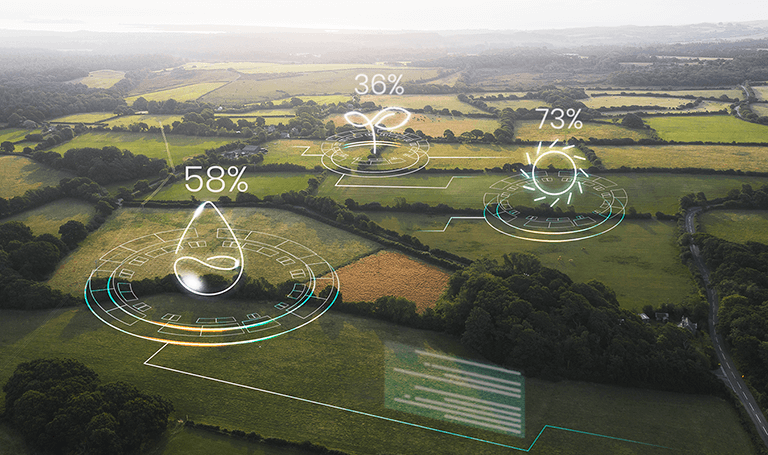Data Analytics: A Catalyst for Climate Action

In the face of escalating climate change challenges, the global community is turning to innovative solutions to mitigate environmental impact. As we gather at the Climate Change Convention, it is imperative to recognize the pivotal role that data analytics can play in shaping effective strategies for climate action. This article aims to explore the intersection of data analytics and climate change, shedding light on how harnessing data can drive informed decision-making and foster sustainable practices.
Understanding the climate data landscape is essential in navigating the complexities of our planet's changing climate. It involves delving into a vast and interconnected web of meteorological, atmospheric, and environmental data that spans various temporal and spatial scales. This intricate tapestry of information encompasses everything from temperature and precipitation patterns to sea-level rise and carbon emissions. A comprehensive grasp of the climate data landscape allows scientists, policymakers, and researchers to identify trends, assess the impact of human activities, and formulate effective strategies for mitigation and adaptation. The diversity and sheer volume of climate data require advanced technologies and data analytics tools to uncover meaningful insights. It's not merely about collecting information; it's about interpreting the nuances within the data to develop a holistic understanding of Earth's dynamic climate system. As we navigate the climate data landscape, we gain the knowledge needed to make informed decisions and implement evidence-based policies that can contribute to a sustainable and resilient future.
Data-driven climate solutionsData-driven climate solutions have become a paramount concern in the global effort to address the pressing challenges of climate change. As the Earth's climate continues to undergo rapid and often unpredictable shifts, the need for informed and strategic interventions has never been more critical. Data-driven approaches empower us to glean insights from an overwhelming volume of information, providing a comprehensive understanding of climate patterns, vulnerabilities, and potential impacts. Real-time monitoring and predictive analytics offer the capacity to anticipate and respond to evolving environmental threats with unprecedented agility. This urgency is not just a call for technological innovation; it's a recognition that data-driven solutions can be the catalyst for transformative action. By harnessing the power of data, we can forge a path toward sustainable practices, resilient communities, and a planet that thrives in the face of an uncertain climatic future. The time to leverage data for climate solutions is now, and the urgency of this endeavour cannot be overstated in our collective pursuit of a healthier, more sustainable world.
Global Collaboration Through Data SharingGlobal collaboration through data sharing has become instrumental in addressing complex challenges that transcend national borders. In an era defined by interconnectedness, the exchange of information across countries and continents has proven essential for tackling issues such as climate change, pandemics, and economic disparities. Data sharing fosters a collective understanding of global trends, enabling nations to collaborate on solutions grounded in comprehensive insights. Whether it's scientific research, public health initiatives, or environmental conservation, the seamless flow of data enhances our ability to respond swiftly and effectively to shared challenges. Moreover, collaborative data efforts promote transparency, trust, and the pooling of resources, fostering a sense of collective responsibility. As we navigate an increasingly interdependent world, embracing global collaboration through data sharing is not just a strategic choice; it's a fundamental step toward building a more resilient and sustainable future for all.
As we convene at the Climate Change Convention, it is evident that data analytics stands as a powerful ally in our collective fight against climate change. By harnessing the full potential of data, we can unlock insights, drive innovation, and implement sustainable strategies that will shape a resilient and environmentally conscious future for generations to come.
Data-Driven Carbon Footprint Reduction StrategiesData-driven carbon footprint reduction strategies represent a cutting-edge approach to combating climate change. Harnessing the power of data analytics allows organizations and governments to gain granular insights into the intricacies of their carbon emissions. By meticulously tracking and analyzing energy consumption, transportation patterns, and production processes, decision-makers can identify specific areas for improvement. Real-time data monitoring enables quick adjustments and the implementation of targeted interventions to reduce carbon emissions. Moreover, predictive analytics can forecast the environmental impact of different strategies, helping stakeholders prioritize initiatives with the greatest potential for carbon footprint reduction. This data-driven approach not only enhances the precision of mitigation efforts but also allows for the continuous refinement of sustainability practices. In essence, leveraging data to inform carbon footprint reduction strategies is not just a technological advancement; it represents a strategic and adaptive response to the urgent need for sustainable practices in the face of a changing climate.
Predictive Analytics for Climate ModellingPredictive analytics for climate modelling has emerged as a crucial tool in our collective efforts to comprehend and respond to the complex dynamics of a changing climate. By leveraging advanced statistical techniques, machine learning algorithms, and vast datasets, predictive analytics enables scientists to forecast future climate scenarios with a high degree of accuracy. This forward-looking approach is instrumental in anticipating the potential impacts of climate change on different regions and ecosystems. It goes beyond historical data analysis, incorporating current trends to generate models that project future climatic conditions. Predictive analytics not only helps identify potential risks, such as extreme weather events or shifts in precipitation patterns, but also provides valuable insights for developing proactive strategies and policies for climate mitigation and adaptation. As our understanding of climate intricacies deepens, the application of predictive analytics becomes increasingly vital in shaping resilient communities and sustainable practices that can withstand the challenges posed by a rapidly changing environment.
Big Data's Role in Renewable Energy IntegrationBig Data plays a pivotal role in the seamless integration of renewable energy into our power systems, marking a paradigm shift in how we generate and distribute energy. The unpredictable nature of renewable sources like solar and wind power requires sophisticated data analytics to manage their intermittency and optimize energy production. Big Data analytics enable real-time monitoring of renewable energy assets, allowing for precise predictions of energy generation and consumption patterns. This information is invaluable for grid operators and energy providers, facilitating efficient planning and balancing of the grid. Additionally, Big Data analytics help identify optimal locations for renewable energy installations, taking into account environmental factors and maximizing energy output. As we transition towards a more sustainable energy landscape, the insights derived from Big Data empower us to harness the full potential of renewable sources, creating a resilient and environmentally friendly energy infrastructure for the future.
Join our the insight community and get exclusive updates, industry news, and practical resources to drive your business forward.




